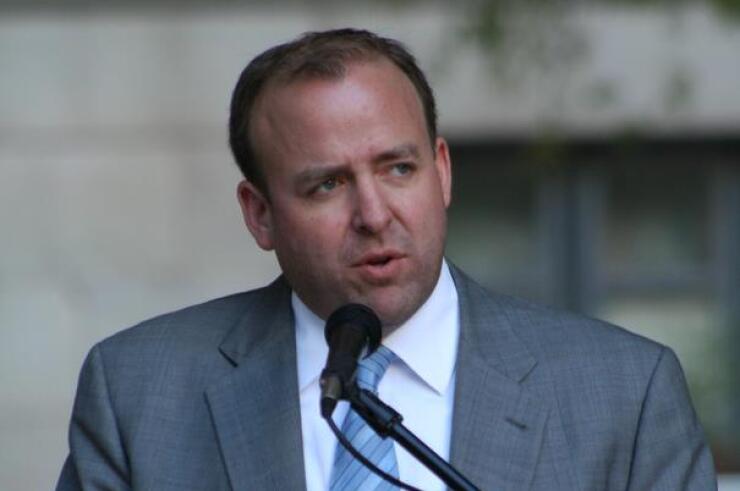The Chicago City Council’s adoption of a
Moody’s, the one rating agency with a junk rating on Chicago, called the move a “credit positive.”
“The mandate will significantly increase the frequency and timeliness of the city's financial disclosures, enhancing transparency — a credit positive improvement in the city's governance,” Moody’s said in a special commentary this week. “While Chicago's transparency and disclosure practices have been generally sound, it had failed to adopt a few best practices followed by some other US municipalities.”

It’s one bit of positive news for Chicago Chief Financial Officer Jennie Huang Bennett to share with investors at the
A discussion of the city’s various credits and those of its sister agencies including Chicago Public Schools, Chicago Park District, and Chicago Transit Authority is slated for the afternoon, capped off by comments from Bennett. The conference opens with the keynote session “Taking Stock of 2020” led by Mayor Lori Lightfoot and moderated by Bennett.
The City Council unanimously passed the ordinance sponsored by Alderman Brendan Reilly in late April expanding a quarterly reporting mandate to a monthly one for corporate fund revenues, in addition to a year-over-year comparison.
Reilly pursued the ordinance to speed up the disclosure of information so the council isn’t caught off guard by big tax revenue drops like those that occurred last year as the COVID-19 pandemic’s toll mounted.
Lightfoot initially said last spring that the city could manage the revenue losses because it doesn’t rely too heavily on any one tax. But losses cut across many tax streams and in August the administration warned of an $800 million hit in 2020 with another roughly $800 million hit contributing to a $1.2 billion gap heading into 2021.
The information will provide “one more tool in the bucket for all of us as members of the council to work with the administration proactively and in real-time rather than having to wait on a quarterly basis,” Reilly said on the council floor. The more information the council has, the sooner “better informed decisions can made so that crisis don't come to a head in mid-October when we are in budget deliberations,” he said.
The administration supported the ordinance after Reilly agreed to some amendments.
Moody’s called Chicago’s disclosure practices “sound,” as it typically publishes its annual results within six to seven months after the fiscal year close and annually publishes a budget forecast in the summer ahead of a budget proposal and includes updated financials in bond offering documents.
But the prior process still allowed for substantial periods to lapse without the city making updated financial information available, including during the coronavirus pandemic.
“While some information was available from the state such as sales tax receipts, solid estimates from the city on the pandemic's toll on other revenues was not available for several months,” Moody’s said.
While the new ordinance provides for frequent financial disclosures, the information required is “not as comprehensive as some other local governments and isn’t as comprehensive as the quarterly financial statements released by corporate entities,” Moody’s said.
The ordinance does not require reporting of expenditures. Some local governments also regularly report cash flow projections and investment reports, two items which are also not addressed in Chicago's ordinance.
Moody's rates Chicago Ba1. Three other rating agencies assign investment-grade ratings.





